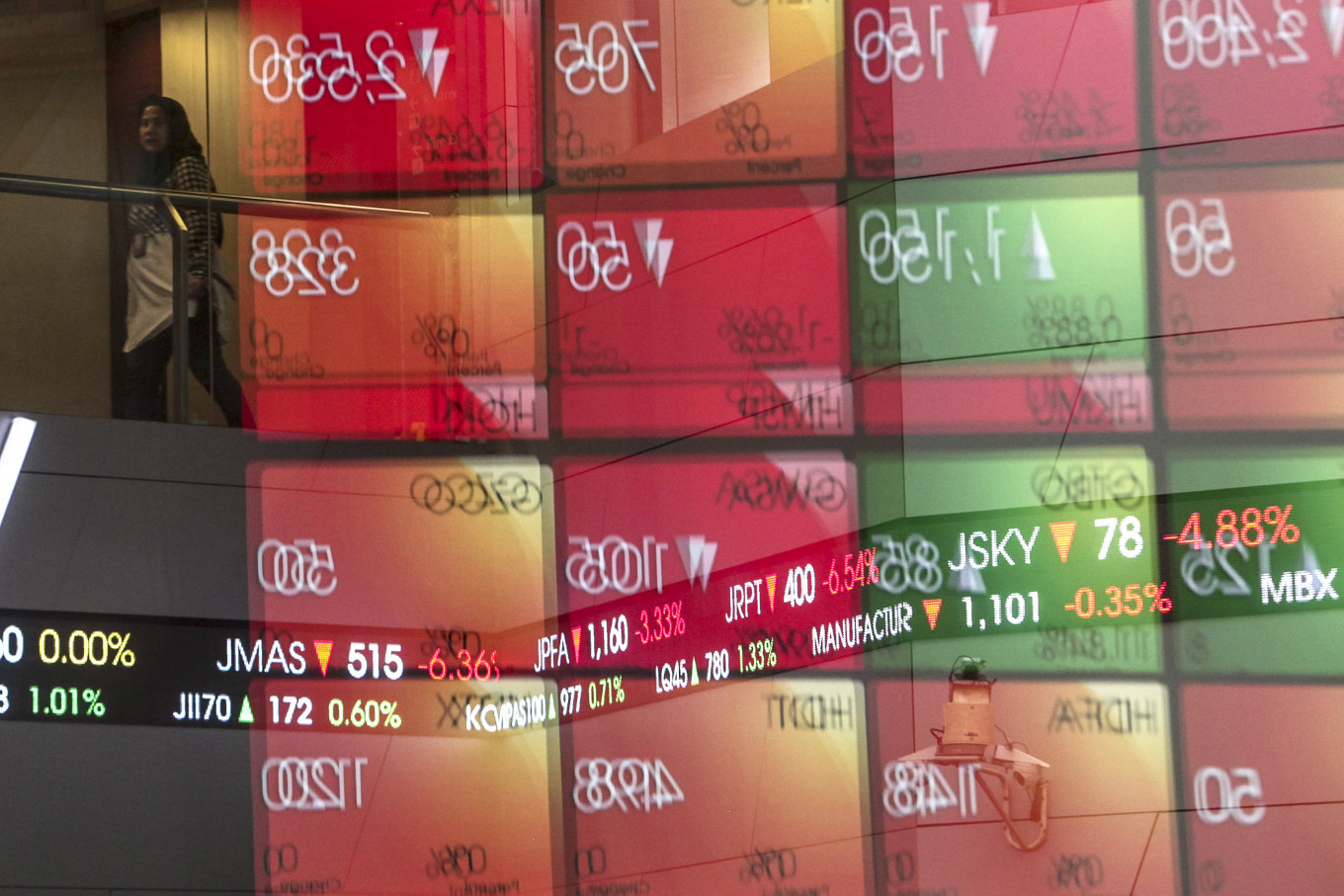Popular Reads
Top Results
Can't find what you're looking for?
View all search resultsPopular Reads
Top Results
Can't find what you're looking for?
View all search resultsRetail investors prone to bias, herd behavior, experts warn
Change text size
Gift Premium Articles
to Anyone
R
etail investors, who have surged in numbers during the pandemic, are prone to behavioral bias and herd behavior, experts have warned, although the impact on the country’s stock exchange remained limited.
The behavioral biases include confirmation bias, where people only want to hear things that align with their predisposed outlook and ignore those that are not, according to Budi Frensidy, a stock market expert from the Faculty of Economics and Business at the University of Indonesia.
Another type of bias is availability bias, which refers to the tendency of people taking action based on familiar information, without further investigation.
“Retail investors run into behavioral bias, something that institutional investors do not experience, as institutional investors have to refer to a set of guidelines or strict rules,” Budi said during a webinar on Tuesday, saying that, for example, institutional investors had to keep their losses within a predetermined percentage range.
Retail investors, on the other hand, are more flexible in their investing, and their asset allocation is determined by more varied factors, including their age, in comparison to institutional investors whose asset allocation is solely determined by their ability to take risks, Budi explained.
During the pandemic, the local bourse saw a significant increase in domestic retail investors' participation, while foreign investors sustained selling pressure on the market. The number of retail investors at Indonesia Stock Exchange (IDX) has reached over 1.2 million, growing by 12.17 percent as of June 30 from December last year, according to data shared by Budi.
According to IDX data, the bourse on Tuesday comprised of 62 percent domestic investors and 38 percent foreign investors. At the end of last year, the shares of domestic and foreign investors were 55.71 percent and 44.29 percent, respectively.
Foreign investors dumped Rp 295.44 billion (US$20.3 million) worth of stocks on Tuesday, sustaining a trend of foreign net sells that amounted to Rp 19.11 trillion this year.
Read also: Domestic investors dominate stock market amid pandemic
On June 8, retail investors’ average daily transaction value surpassed that of the institutional investors by Rp 2.9 trillion, the first time in history, according to IDX.
However, Budi said that the behavioral bias would not significantly impact the market, as retail investors’ funds were only around 17 percent of those of institutional investors.
Meanwhile, Anugerah Mega Investama director Hans Kwee said retail investors also tended to be influenced by herd behavior in that they are likely to react faster to negative news than positive ones.
“When the market goes down, people tend to panic,” Hans said. “But when [the trading] is temporarily suspended following the decline, people return to being rational and that is why we can see prices rallying up,” he added, noting how regulatory actions could counteract investors’ behavioral dispositions.
Hans attributed the rising participation of retail investors to the large-scale social restrictions implemented to curb the spread of the coronavirus, which led to many people working from home.
As of July 24, the average number of daily retail investors trading on the market increased by 52 percent year-on-year (yoy) in July, with the highest number recorded so far on July 24 when the bourse saw over 112,000 retail investors trading on a single day, according to data provided by IDX development director Hasan Fawzi.
In July last year, the average was 60,000 daily retail investors.
Almost 70 percent of the retail investors in the country were under 40 years old, Hasan said.
However, he saw the trend as something positive, noting that the dominance of domestic retail investors would help the bourse to be less volatile against the foreign capital flight.
“We hope that this can increase our capital market resilience level, especially in times of volatility or economic crisis,” Hasan said.
Indonesia's capital market is considered to be shallow at Rp 5.92 quadrillion in market capitalization as of Tuesday, a steep fall from Rp 7.26 quadrillion in 2019, IDX data showed.
The IDX is planning to introduce new systems to prevent trading actions taken based on asymmetric information. Hasan said that the bourse is developing a watch list board to highlight companies that have issues with liquidity, volatility or irregular price discovery mechanisms, so that investors could be made aware of the risks when investing in these stocks.
It is also working into integrating artificial intelligence and machine learning to detect irregular market activities, such as false trading and stock price manipulation, to improve market surveillance.
Read also: Market manipulation among common violations found at IDX: OJK










